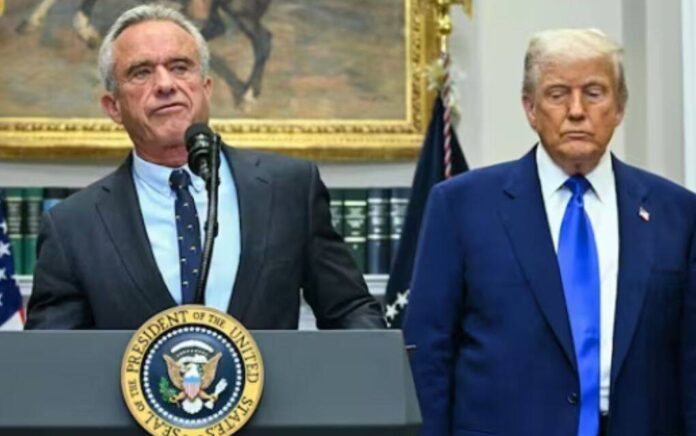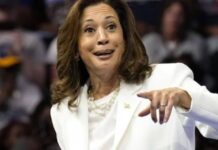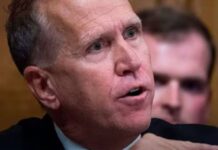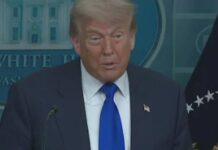
Donald Trump has been at odds with the Democrat Party. But some of those feelings may be changing.
And Republicans can’t believe their eyes after what Trump just sided with Democrats on.
Trump’s Policy Shift: Blending Republican Roots with Various Democratic Policies
President Donald Trump is steering the Republican Party into uncharted territory, championing policies that echo long-standing Democratic priorities while framing them as pragmatic solutions for a new “golden age” in America, according to Fox News Digital. His administration’s recent moves—ranging from aggressive action on prescription drug prices to expanding family-focused tax credits—signal a GOP that’s redefining itself as the party of the working class, rooted in what Trump calls “common sense.”
“In everything we do, we’re putting America first, because the Republican Party is now known as the party of common sense. It’s the party of common sense. Very important. I think it’s a very important phrase for you to use. It’s all about common sense. We’re conservative, and, you know, we’re a lot of things, but most important thing is we have to use common sense,” Trump declared in February at a gathering of Republican governors.
A Surprising Pivot on Prescription Drugs
On Monday, Trump, joined by Health and Human Services Secretary Robert F. Kennedy Jr. and other health officials, signed an executive order aimed at slashing prescription drug prices by up to 80%. The order mandates that U.S. officials ensure foreign countries aren’t unfairly driving up American drug costs.
“The principle is simple – whatever the lowest price paid for a drug in other developed countries, that is the price that Americans will pay,” Trump announced at the White House. “Some prescription drug and pharmaceutical prices will be reduced almost immediately by 50 to 80 to 90%.”
He went further, vowing to end what he described as America subsidizing foreign healthcare systems: “Starting today, the United States will no longer subsidize the healthcare of foreign countries, which is what we were doing. We’re subsidizing others’ healthcare, the countries where they paid a small fraction of what for the same drug that what we pay many, many times more for and will no longer tolerate profiteering and price-gouging from Big Pharma.”
This move, which could be likened to price controls, mirrors a Democratic playbook. Vermont Sen. Bernie Sanders, a vocal advocate for cutting drug costs, praised the intent behind Trump’s order while cautioning that it may face legal challenges. “I agree with President Trump” that Americans pay “the highest prices in the world for prescription drugs,” Sanders said, though he urged support for his own upcoming legislation to address the issue.
Kennedy, a scion of Democratic royalty, hailed the order as a breakthrough. “This is an extraordinary day,” he said. “… I grew up in the Democratic Party and every major Democratic leader for 20 years has been making this promise to the American people. This was the fulcrum of Bernie Sanders’ runs for the presidency, that he was going to eliminate this discrepancy between Europe and the United States. As it turns out, none of them were doing it.”
Expanding the Child Tax Credit
Trump’s agenda also includes a push to expand the child tax credit, a policy long championed by Democrats like Vice President Kamala Harris and House Minority Leader Hakeem Jeffries. Recently, House Republicans unveiled parts of Trump’s tax plan, which includes raising the child tax credit from $2,000 to $2,500 per child—a modest but notable increase.
During his campaign, Trump signaled openness to even bolder expansions, with his team noting he’d consider a “significant expansion of the child tax credit that applies to American families.” Sen. JD Vance, then an Ohio senator, floated a $5,000-per-child credit, though he acknowledged it would require Congressional approval.
Taxing the Wealthy: A Redistribution Rethink
Perhaps most striking is Trump’s willingness to entertain tax hikes on the wealthy, a stance that breaks sharply with traditional Republican orthodoxy. Last week, he described such a policy as a form of “redistribution” to ease the burden on middle- and lower-income Americans. “People would love to do it. Rich people. I would love to do it, frankly. Giving us something up top in order to make people in the middle income and the lower income brackets [have] more. So, it’s really a redistribution,” Trump said.
In a Truth Social post, he acknowledged potential backlash but signaled flexibility: “The problem with even a ‘TINY’ tax increase for the RICH, which I and all others would graciously accept in order to help the lower and middle income workers, is that the Radical Left Democrat Lunatics would go around screaming, ‘Read my lips,’ the fabled Quote by George Bush the Elder that is said to have cost him the Election. NO, Ross Perot cost him the Election! In any event, Republicans should probably not do it, but I’m OK if they do!!!”
A Transformed GOP?
The White House frames Trump’s approach as a reinvention of the Republican Party. “President Trump oversaw a historic transformation of the GOP to again become the party of the working class,” said spokesman Kush Desai. “While Democrats spent decades talking about helping everyday Americans, President Trump is actually delivering – revealing Democrats’ incompetence and corruption in the process.”
Trump’s coalition also reflects this shift. Former Democrats like Kennedy, now an Independent, and Tulsi Gabbard, who recently joined the GOP, have thrown their support behind him. Tech billionaire Elon Musk, once a Democratic voter, has become a vocal Trump ally, serving as a special government employee leading the Department of Government Efficiency. “We actually got a lot of great Democratic support, we just got RFK [Jr.], of course, Tulsi Gabbard, who endorsed the president in just the last couple of days,” Vance noted during the campaign.
As Trump pushes for his “big, beautiful bill” to fund his vision, his administration’s embrace of policies once seen as Democratic hallmarks signals a new chapter for the Republican Party—one that’s betting on pragmatism and populism to redefine its future.
Stay tuned to The Federalist Wire.



















